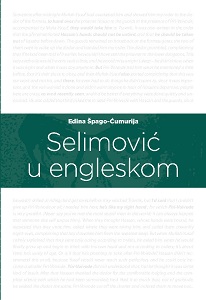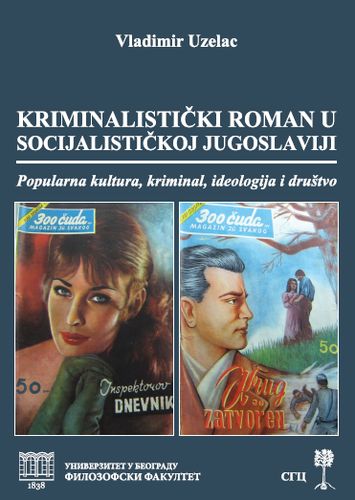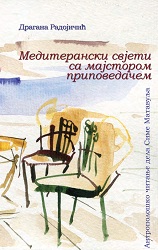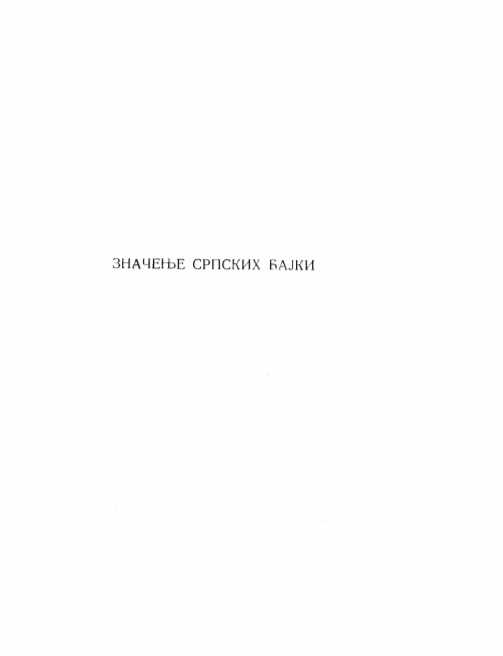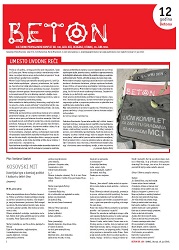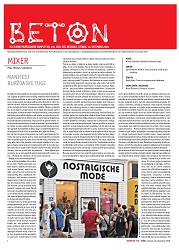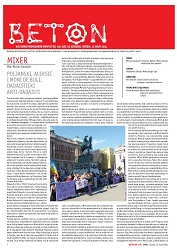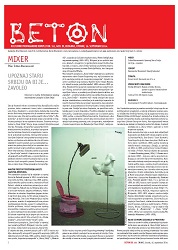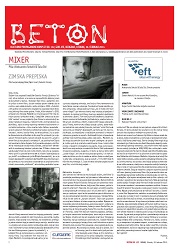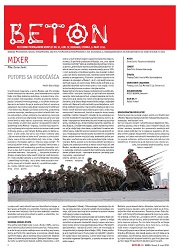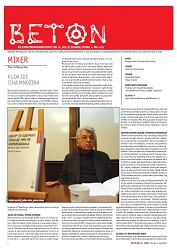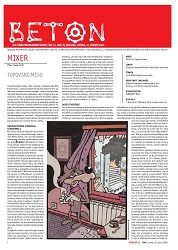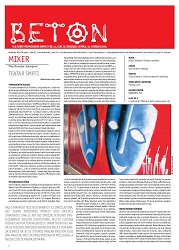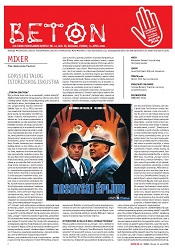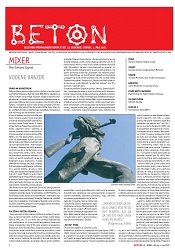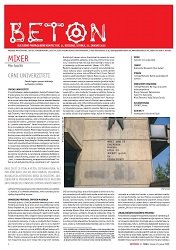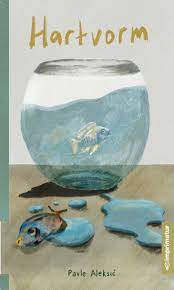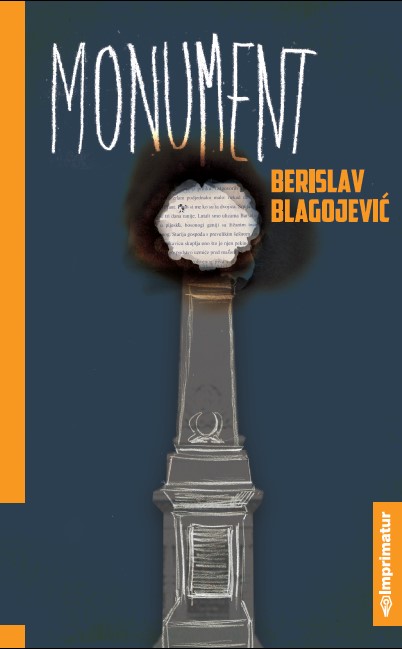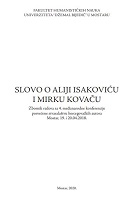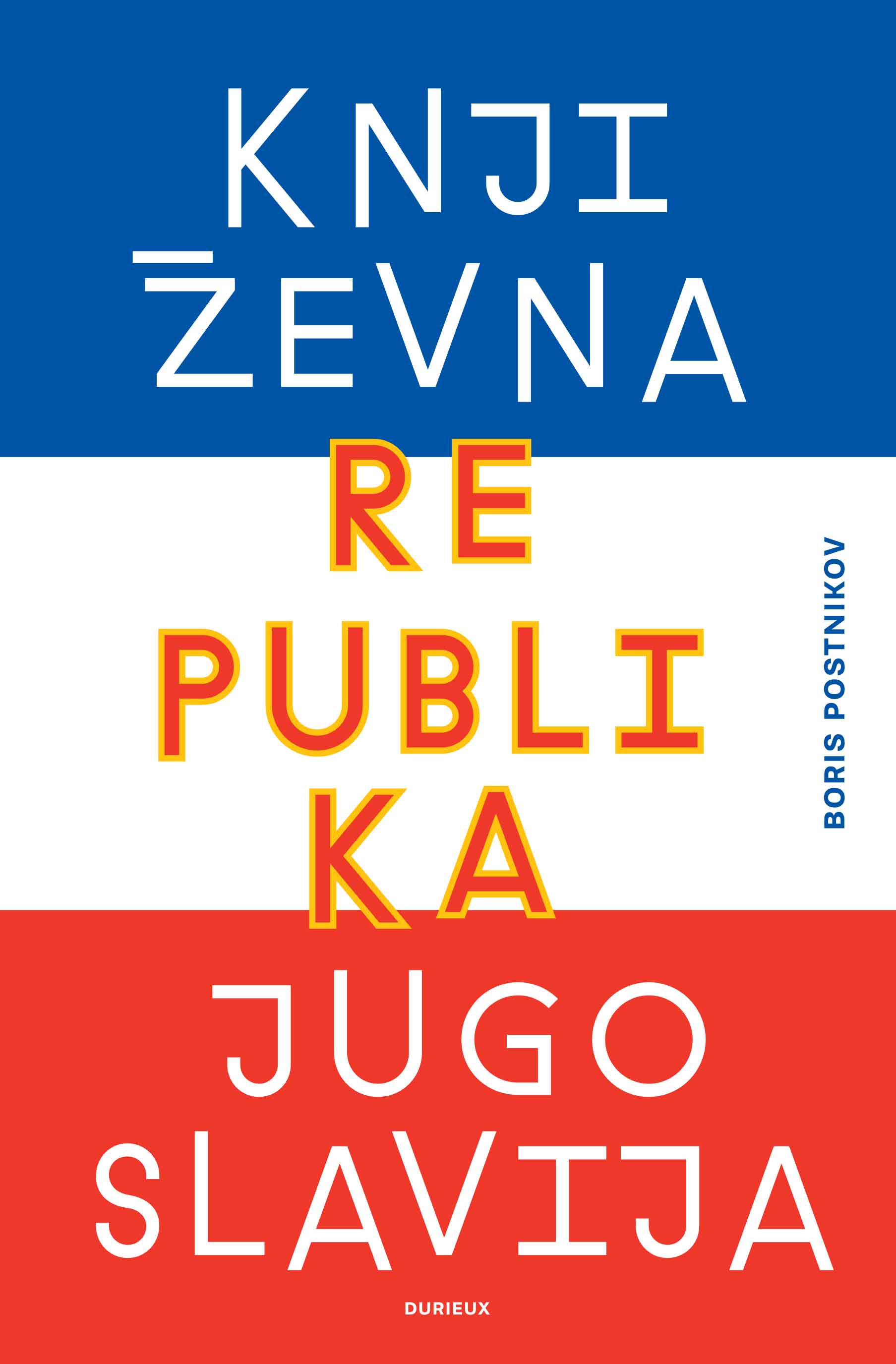Author(s): Dragana Antonijević / Language(s): Serbian
Although world literature has thoroughly studded fairy tales, this cannot be said for the ones that are a part of Serbian folk creativeness. Partly dealt with in our folkloristic, they have remained, in general, out of the domain of scientific interest of Serbian ethnology. Hance my wish to treat, from an ethno-folkloric aspect within our bounds, this insufficiently explored matter. Regarding the fairy tales as a particular meta-language, used to carry on definite messages, my theoretical and methodological starting point was to investigate the fairy tale as a symbolic system through a structural-semantic analysis. The research was directed to what the fairy tales are talking about, what notional and value content imbues their structure, and finally, to what level of reality they pertain. Although a fairy tale transmits universal ideas indeed, and the matter it deals with concerns essential and existential problems in the human life, such as life and death, love and hate, sexuality and sin, happiness and destiny etc. I have decided to make choice of particular segment of reality and limited myself to social, to be more precise, and family relations. This election has been motivated by the fact that the basic interest of the fairy tale is directed to the destiny of the individual, has process of maturing and the affirmation he realizes within the sphere of personal, marital and family relationships. The basic aim of the research was therefore the establishing structure of the messages that fit in the context of the above mentioned social relationships in the Serbian tales and their deeper „reading" by means of two global semantic model — cognitive and axiological. Thus the paradigmatic organization of the social code that dominants structure of the fairy tale has been extracted, not discarding, the other ones with which the social one is deeply integrated and knitted manifold, for instance, the cosmological and mythological, religious, geographical, biological, moral and others, that altogether take part in building the general filed of meaning in a fairy tale. The analysis has operated with the results that structural anthropology and folkloric have come up to. In most cases I have used A. J. Greimas’ method of the semiotic square or the elementary structures of meaning because this logical model gives clear picture of the notional structure of the fairy tales when the bigger and smaller meaning units combine on the principles of the opposites, contradictions and implications. Distributed on the bases and sides of the semiotic square, these terms build multilateral and multi-leveled mutual meaning relationships. Furthermore, certain analytic modes of other structuralists and semioticians, such as Levi-Strauss, Vladimir Propp, Meletinsky, Joseph Courtes, Claude Bremond and others have been applied. In a great number of cases direct application of these methods was impossible and thus I have operationalized them, that is, adapted to the matter I was dealing with. Material that form my research I have limited to the Serbo-Croat language domain, fairy tales collected throughout the nineteenth and twentieth century in those regions of south Slavic countries inhabited by Serbian population. A body of forty fairy tales, which the plot and the unknowing on the narrative plane encompass at the same time the conflict on. the plane of marital and family relationships, has been chosen. It has been taken from the two best known, and in my opinion, best collections of Serbian folk tales, Vuk St. Karadzic’s and Veselin Cajkano. Undoubtedly, the motif and thematical scope of the Serbian fairy tales represent variations of the known international stories. However, the particular type of cultural and social reality in which the tale generates and is further carried on, will determine the choice of motifs and themes understandable and acceptable to that culture. In that sense it should be expected that the fairy tales Serbian folk has narrated contain a selection and adaption of international motifs applied to its specific culture. Hence the ethnographic context is determined which represent a referential frame for stipulating the messages codes and interpretation. This context is partly extracted ideotypologically as a reconstruction of the patriarchal, traditional system of the Serbian rural society whose main axsis lay on the relationships within the family, the co-operative, the kin and the village. It is familiar to us from abundant ethnographic material indirectly dealt with and used in the semantic analysis. Their reconstruction. is based upon generally accepted premises about the global construction of the patriarchal societies believed to be the social-historical foundation for the genesis and transmition of fairy tales. It should be pointed out that the protracted domination of the patriarchal regime among the Serbian folk has contributed to the maintaining of certain archaic elements that have for a long time disappeared from the other European fairy tales in societies with more developed urban culture than has been the case with Serbians. Aside from The Introduction, the book contains three great thematical wholes: Out of the Circle, Circular Travelling and In the Circle. These headlines metaphorically denote the course the author has taken in solving this problem. In the first part through the chapters „Toward interpreting fairy tales" and „Serbian fairy tales: culture „digested" inwardly and outwardly" theoretical and methodological frames of research have treated and the introduction into the goal of work has been presented. In the second part, the analysis of the chosen body of fairy tales has been carried through. They are divided into three problem groups that contained typologically internal semantic homogeneousness, and thematically took for granted the elementary ideas out of which sprang the constant of the stories. The first cycles called „Initiation Secret" is divided into two sub-chapters: „Faraway Princesses" and „Insignificant Marriages" gave the basis for a classificational system which brings out what are the conditions to contract a proper marriage, where and how to look for a partner as well as all the obstacles could be encountered on the way. The second thematic round „Model Girls" through the confrontation of two sub-chapters, headed „Life in Ashes" and „The Slope", adjoins the problem from the previous group and talks of family conflicts sprung from the need to contract a marriage but accentuates the incompatibility of certain choices: too close or too distant partners and, of course, the solution of the problem. Finally, the third cycles „In the World of Spells or of Love" with the chapters „The Forbidden Chamber" and „The Beauty and the Beast", treats the mutual relationships of the partners, focusing on the semantic paradigms of sexuality, love, eroticism, sin and death. The third part of the work „In the Circle" in the chapter „Diagonals and Parallels", contains final treatises come up with in the previous analysis. It has turned out that the third cycles of the fairy tales has closed the circle attaching to the first cycles about dragons and dragon killers or, one could also say, it has opened a new thematic round always to be fulfilled on the semantic filed of fairy tales. At the end there are two annexes. The first contains the tabular presentation of the analyzed fairy tales according to the formally structural classificational criteria. In the second, named „The Structure of the Plot or Reason at Work", detailedly the theoretical and methodological procedure applied in the work has been inspected.
More...
